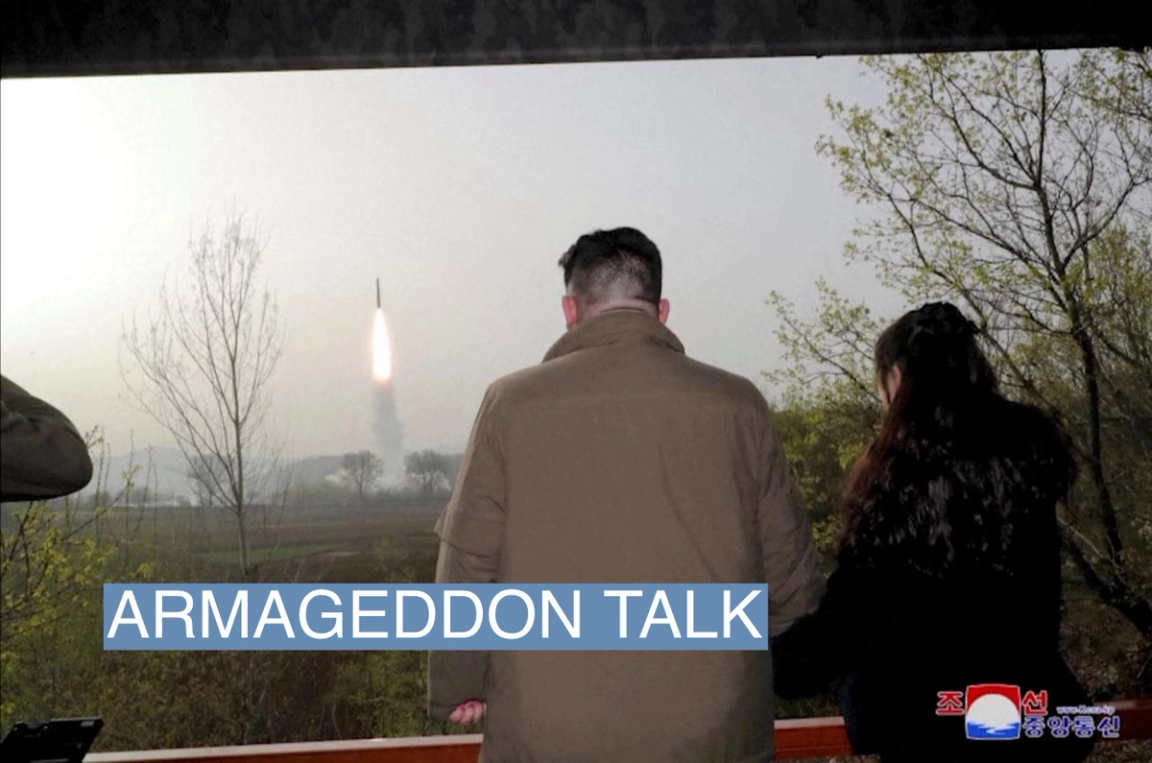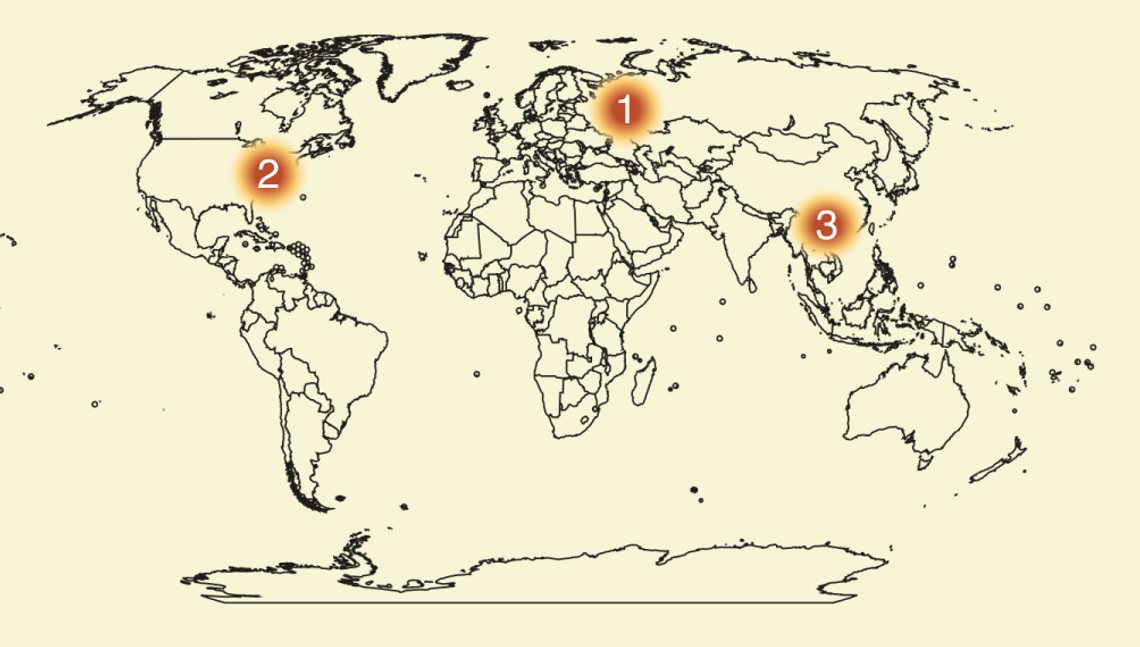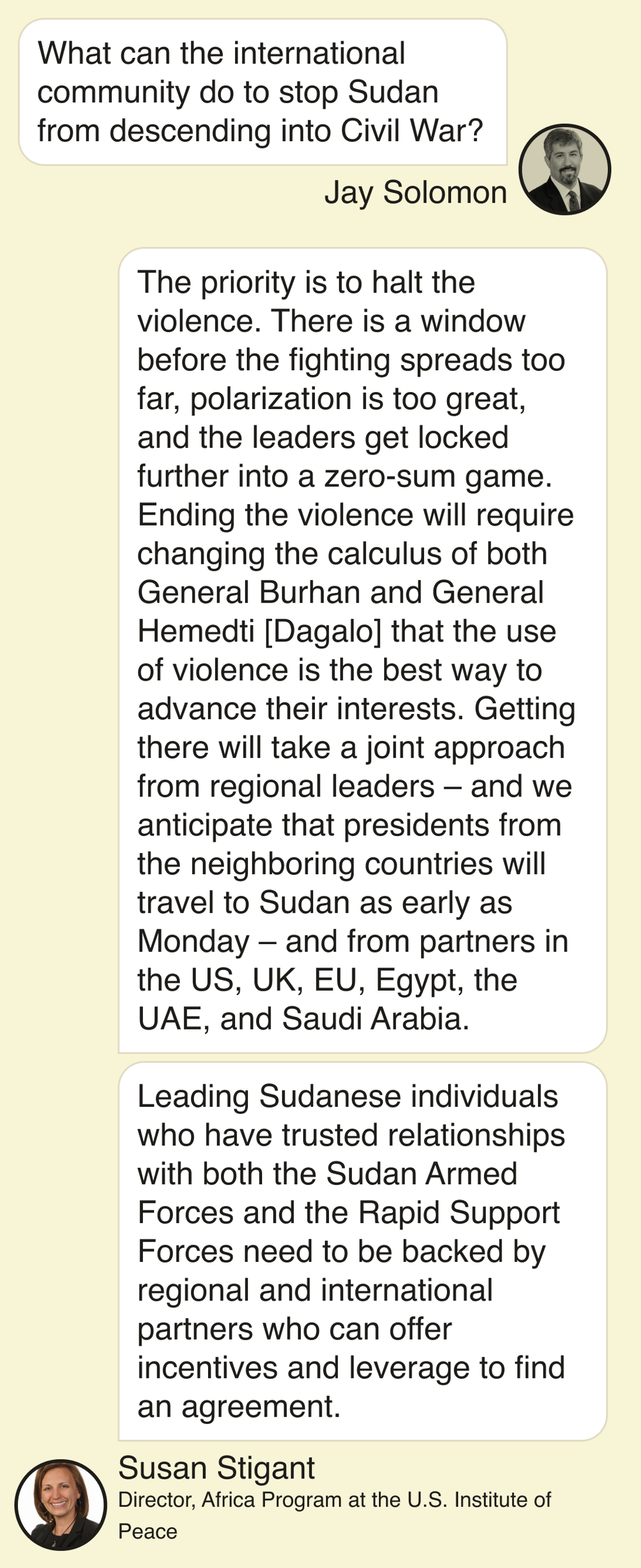 North Korea’s Korean Central News Agency North Korea’s Korean Central News AgencyTHE NEWS North Korea’s nuclear weapons arsenal grew by as much as 75% over the past five years, as U.S. and Chinese diplomatic efforts to halt Pyongyang’s advances languished. This expansion, detailed in a recent report by the Washington-based Institute for Science and International Security, includes the North generating enough fissile material for six new nuclear bombs a year, using a mix of uranium-enrichment facilities and nuclear reactors inside the closeted country. Pyongyang likely now has a stockpile of 72 bombs, up from 41 in 2017, the ISIS study concludes. Its estimates are based, in part, on historic data from the U.N.’s nuclear watchdog tracking North Korea’s production of fissile material, and information gleaned more recently from American and European visitors to the Yongbyon nuclear reactor complex. The group notes that its findings are somewhat uncertain because North Korea is now developing larger and increasingly sophisticated nuclear weapons that require more plutonium and uranium. Pyongyang has also been growing its stock of missiles. According to the U.S. government, the North tested 63 in 2022, more than double its previous annual record. These include eight intercontinental ballistic missiles that the North says are targeted at the western U.S. and overseas American military bases, such as in Guam. North Korean leader Kim Jong Un oversaw the test of a Hwasong-18 ICBM last Thursday, along with his daughter and his sister. The North also recently claimed to have successfully tested a nuclear-equipped underwater attack drone capable of creating a “radioactive tsunami.” KNOW MORE North Korea’s atomic surge is coinciding with a troubling shift in Kim’s rhetoric about his military strategy and war planning. Gone are the days of Pyongyang’s leaders talking solely about their need for a nuclear deterrent to guard against American militarism. Today, the 39-year-old is touting his “offensive” capabilities, including tactical nuclear weapons, that could be used by Pyongyang to win a land war against South Korea. Last week, Kim met with North Korea’s Central Military Commission as the U.S. and South Korea has staged some of the largest war games in history on the Peninsula. The North’s leader called for a “more practical and offensive” nuclear arsenal to “cope with the escalating moves of the U.S. imperialists,” according to state media. Pyongyang’s propaganda organs have also begun regularly publishing pictures of battle maps and miniaturized nuclear warhead designs as a signal to the world of how they could use tactical nukes in a war with the South. JAY’S VIEW Interpreting Kim’s saber rattling is always tricky, and it would be an exaggeration to suggest that he is clearly signaling a willingness to launch a nuclear first strike. But North Korea-watchers do say the most alarming aspect of the buildup is that Kim seems to sincerely believe he could win a nuclear exchange. “North Korea continues to come back to this idea that this isn’t about détente,” David Albright, the author of the ISIS report, told Semafor. The unrestrained growth of North Korea’s nuclear program also poses major proliferation risks globally. While Kim has pledged not share any of his nation’s nuclear weapons or materials, Pyongyang has a horrific track record. In 2008, Israel’s military destroyed a reactor in Syria that the U.N. concluded was entirely built by North Korea. The North also traded with the father of Pakistan’s nuclear program, A.Q. Khan, swapping North Korean missile components for Islamabad’s centrifuge equipment. Going forward, the more weapons and fissile material North Korea has to spare, the greater the risk it could trade some away for desperately needed hard currency. It’s possible that North Korea’s program would be moving at less of a breakneck pace today were it not for a crucial decision made by former President Donald Trump’s administration. Kim held three summits with Trump, and ultimately agreed to some vague limitations on its arsenal under the 2018 Singapore declaration. But this diplomacy broke down a year later over the pace and scope of denuclearization. Trump’s then-national security advisor, John Bolton, demanded a “Libyan model” from the North: a reference to a U.S. deal with Tripoli’s late dictator, Moammar Ghadafi, in which he gave up his entire program all at once in exchange for diplomatic recognition and sanctions relief. Kim balked, according to U.S. officials, offering only to shut down the Yongbyon complex in the initial phase of the process. Trump later blamed Bolton for unraveling the North Korea diplomacy. “We were set back very badly when John Bolton talked about the Libyan model ... what a disaster,” he told reporters at the White House. The advantages of at least having a framework to constrain Pyongyang’s nuclear advances, rather than the current unrestrained program, are becoming more apparent over time. THE VIEW FROM WASHINGTON The Biden administration has made a number of diplomatic overtures to the North Korean government over the past two years to hold discussions about the nuclear issue “without preconditions.” But Pyongyang hasn’t responded, according to senior U.S. officials. U.S. President Biden also sought to enlist Chinese leader Xi Jinping as a partner to pressure Kim — arguing in Bali last November that Beijing had an “obligation” to curb the North’s nuclear advances — but also without gaining any commitments. Kim, however, has made it clear in recent months that he isn’t interested in giving up his nuclear arsenal. Last November, Kim told North Korea’s parliament that his nuclear program was irreversible and that he possessed the right to strike first with nuclear weapons to guard against a U.S. or South Korean attack. Barring diplomacy, the Biden administration has committed to maintaining stringent economic sanctions on North Korea to roll back its nuclear work. But without firm Chinese cooperation, these financial penalties are unlikely to alter Kim’s strategy, according to current and former U.S. officials. Pyongyang continues to generate hard currency from the export of workers and coal to China, according to reports from South Korea. ROOM FOR DISAGREEMENT Bolton slammed Trump as naïve and said his diplomacy was only going to solidify North Korea as a nuclear weapons state, and not mitigate its hostility towards the U.S. “It seems to be clear that [North Korea] has not made a strategic decision to give up its nuclear weapons,” Bolton said in a 2019 speech. “In fact, I think the contrary is true. I think the strategic decision that Kim Jong Un is operating through is he will do whatever he can to keep a deliverable nuclear weapons capability.” | 






